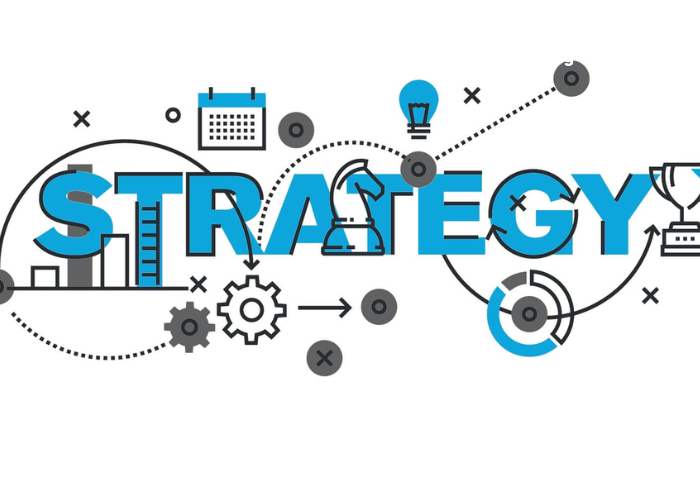In 2025, the business landscape is evolving at a rapid pace, driven by technological advancements, shifting consumer preferences, and global economic changes. To stay ahead in this highly competitive environment, businesses must adopt strategies that focus on sustainable growth, innovation, and customer-centric approaches. This article outlines the top business strategies for growth and success in 2025, ensuring that companies remain agile, adaptable, and profitable.
Understanding the Importance of Strategic Growth
Before diving into specific strategies, it’s essential to understand why strategic growth is crucial for long-term success. Growth isn’t just about increasing profits in the short term; it’s about creating a sustainable, scalable business that can weather economic shifts and technological disruptions. In 2025, businesses that focus on the following strategies will have a strong foundation for growth:
- Adaptability to Change: Businesses that are agile and able to pivot quickly in response to market shifts will thrive.
- Customer-Centric Focus: Customer expectations are rising, and businesses need to be more customer-centric than ever before.
- Innovation and Technology Integration: Embracing technological advancements will be a key driver of efficiency and new opportunities.
- Sustainability: Companies are increasingly held accountable for their environmental and social impact. Being sustainable isn’t just ethical; it’s also a business advantage.
Incorporating these elements into a comprehensive strategy will set businesses on the path to growth and success in 2025.
1. Embrace Technological Advancements for Operational Efficiency
The Role of Automation and AI
In 2025, automation and artificial intelligence (AI) will continue to transform industries. Businesses that harness the power of these technologies can streamline operations, reduce costs, and enhance productivity.
Automation tools such as chatbots, customer service platforms, and inventory management systems can save time, improve accuracy, and enhance the overall customer experience. For instance, AI-driven tools can assist with data analysis, allowing businesses to make more informed decisions based on real-time insights.
Moreover, AI applications in machine learning and predictive analytics are helping businesses forecast trends, manage risks, and optimize marketing efforts. By automating repetitive tasks, businesses can free up resources to focus on innovation and strategic growth.
Cloud Computing for Scalability
Cloud computing offers businesses the flexibility to scale operations without heavy investments in physical infrastructure. By leveraging cloud platforms, businesses can access data storage, computing power, and software as a service, enabling them to adapt quickly to changing needs.
For growing businesses, cloud computing provides a cost-effective solution for expanding globally without the limitations of traditional infrastructure. In 2025, cloud solutions will continue to evolve, offering even more advanced features such as edge computing and hybrid cloud solutions.
2. Focus on Customer Experience and Personalization
Enhancing Customer Engagement
Customer expectations are higher than ever, and businesses that focus on creating personalized, seamless experiences will be better positioned for success. In 2025, customer experience (CX) will be a key differentiator for brands. Businesses must prioritize engagement across all touchpoints, including websites, social media, mobile apps, and in-store experiences.
Implementing data-driven personalization strategies can help businesses deliver tailored experiences. By analyzing customer behavior, preferences, and purchase history, companies can provide relevant recommendations, personalized content, and customized promotions.
Additionally, companies should invest in customer loyalty programs to foster long-term relationships. Loyalty programs based on customer behavior, spending habits, and preferences can encourage repeat business and brand advocacy.
Omnichannel Marketing and Support
In 2025, customers expect a consistent experience across all channels. Omnichannel marketing and support strategies ensure that customers receive the same level of service, whether they’re shopping online, browsing in-store, or interacting via social media.
Integrating customer service teams across different platforms is essential for resolving issues efficiently. With omnichannel support, businesses can track customer interactions, monitor satisfaction levels, and address concerns promptly, improving overall customer loyalty.
3. Innovate with New Business Models
Subscription-Based Services
One business model that has gained traction in recent years and will continue to thrive in 2025 is the subscription model. Businesses offering subscription services provide customers with a continuous supply of products or services in exchange for recurring payments.
The subscription model has proven successful in various industries, from media streaming platforms like Netflix to food delivery services and SaaS (Software as a Service) products. The key benefit of a subscription model is predictable revenue, which allows businesses to better forecast growth and reinvest in their operations.
By diversifying offerings, businesses can cater to different customer segments and create more opportunities for growth. For instance, companies could offer tiered subscription levels with added benefits or exclusive access to premium content.
Digital Platforms and Marketplaces
Digital platforms and online marketplaces have transformed the way businesses connect with customers and other businesses. Companies can expand their reach by listing products or services on popular platforms like Amazon, Etsy, or Alibaba, reaching global markets without the need for a physical store.
These platforms provide businesses with access to a vast customer base and robust marketing tools, such as search engine optimization (SEO) and paid advertisements, to drive traffic to their listings. Additionally, these platforms often handle logistics, allowing businesses to focus on product development and customer service.
4. Invest in Sustainability and Corporate Social Responsibility (CSR)
Eco-Friendly Practices
Sustainability is no longer just a buzzword – it’s a business imperative. Consumers are increasingly making purchasing decisions based on a company’s environmental impact. Businesses that invest in sustainable practices, such as reducing waste, using renewable energy sources, and creating eco-friendly products, can gain a competitive edge.
In 2025, businesses that prioritize sustainability will not only attract environmentally conscious consumers but will also benefit from reduced operating costs. Energy-efficient technologies, waste reduction programs, and sustainable sourcing can improve the bottom line while supporting a healthier planet.
CSR Initiatives
Corporate social responsibility (CSR) is another critical area where businesses can demonstrate their commitment to social and environmental issues. In 2025, companies will be expected to go beyond just donating to charities. They should integrate CSR into their core business strategies, focusing on initiatives that align with their values and create positive social impact.
For example, businesses can invest in community development projects, support diversity and inclusion efforts, or contribute to education initiatives. By demonstrating genuine social responsibility, businesses can strengthen their brand reputation, build customer trust, and attract top talent.
5. Develop a Strong Online Presence and Digital Marketing Strategy
SEO and Content Marketing
In 2025, an effective online presence is crucial for business success. Search engine optimization (SEO) is one of the most cost-effective ways to drive organic traffic to your website. A well-optimized website will appear higher in search engine results, attracting more potential customers.
To improve SEO rankings, businesses should focus on creating high-quality, valuable content that addresses their audience’s needs. Blogging, video marketing, and social media content can engage potential customers, increase brand awareness, and drive conversions.
Additionally, businesses should invest in local SEO to target customers in specific geographic regions. Local SEO ensures that your business ranks well in location-based searches, making it easier for customers to find your products or services.
Social Media Marketing and Influencer Partnerships
Social media marketing remains one of the most powerful tools for reaching customers in 2025. Platforms like Instagram, Facebook, LinkedIn, and TikTok offer businesses opportunities to engage with their audience, share content, and promote products.
Influencer marketing is also expected to continue its rapid growth. Collaborating with influencers who align with your brand values and have a large following can increase brand visibility, boost credibility, and drive sales. In 2025, businesses must carefully select influencers who share an authentic connection with their audience.
Data-Driven Advertising
As digital advertising continues to evolve, businesses must leverage data to create more targeted campaigns. By analyzing customer behavior and engagement data, businesses can tailor their ads to specific demographics, locations, and interests, maximizing return on investment (ROI).
In 2025, businesses will increasingly rely on machine learning and AI to automate ad targeting and optimize campaigns in real time. This will allow companies to run more effective ads, enhance customer engagement, and drive conversions.
Conclusion
The business world in 2025 presents both immense challenges and exciting opportunities. To achieve growth and success, businesses must embrace new technologies, focus on customer experience, and adopt innovative business models. Sustainability, CSR, and a strong online presence will also be essential for building a resilient brand in a rapidly changing market.
By aligning strategies with these emerging trends, businesses can position themselves for long-term success, building customer loyalty, increasing operational efficiency, and driving growth. With the right approach, 2025 can be a year of transformative success for companies ready to adapt and innovate.





